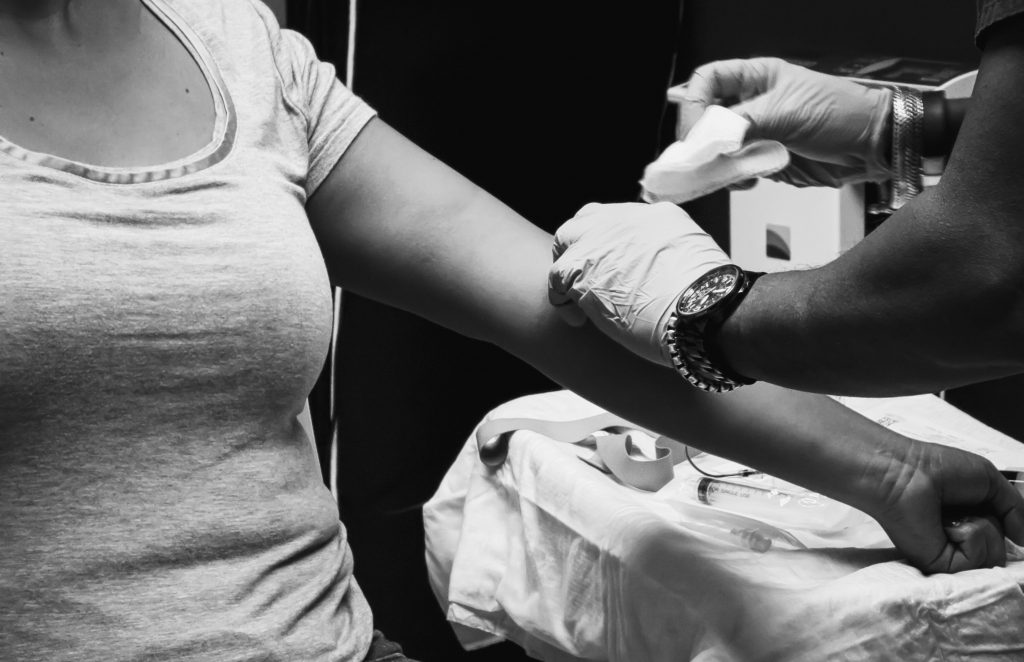As an authorized phlebotomist, you’ll have to work with various patients.
Consequently, most of them are likely to be kind, considerate, and kind.
So this guide, which results from our team’s actual research, will show you how to deal with those who are hard or tough to deal with.
When it comes to treating tough patients with phlebotomy, much of it can be considered art.
Some doctors and staff will be afraid to see some patients because they know their attitude is negative.
Other times, the patient may be nervous and acting out.
For whatever reason, it is never easy to work with someone who degrades you or your profession.
However, part of your job is to make sure the patient is comfortable and safe, no matter what.
A professional attitude is always needed, even if you do not get it in return.
It is well known that managing difficult patients may feel like an impossible task for the phlebotomist.
Often, you are among the first to see if they do more tests and so on.
Thus, your attitude towards them, no matter how rude, can set the tone for their whole experience.
All of this is part of the phlebotomist’s daily challenges.
Page Navigation
Types of Rude Patients
If someone is rude or disrespectful, you probably won’t need much time to notice.
Some patients may be challenging to handle when it comes to the care they receive.
Others may shout, swear, and try to provoke a scene.
It is not suitable for everyone when it comes to a rough patient, which can make it challenging to deal with them.
It is essential always to be aware of your patient’s attitude, no matter what.
They have been waiting for a long time, and of course, there are dozens of other possibilities.
Every person has a different personality.
But when working with a difficult patient, understanding why they may feel so strong in the first place can help you work with them from the best possible approach.
There are various reasons why a patient is acting rude, but in general, it depends on:
- The patient doesn’t appreciate their care.
- Mental health conditions
- They feel that they are not being heard.
- They’ve been waiting a long time.
How to Handle Rude Patients
Understand that you are there to do your job as best you can.
So, why do not we take a look at some tips you can use that will make it easier to work with a rude patient as well as help them calm down.
Dealing with difficult patients will probably be part of your initial phlebotomy training.
But, in fact, if the patient appears to be negative or hard to deal with, it may feel like a completely different scenario.
It is essential never to lose your professionalism.
We’ve singled out a few tips that we thought could help you handle the rude patients.
Compassion
In most cases, you may be able to calm a problematic patient just by listening and showing a little compassion while working.
It can take a difficult situation and significantly reduce it, making the experience better for both of you.
It’s easy to get caught up in the medical and scientific side of your business.
But it is essential to understand that patients do not always speak that language.
Even if you are a great phlebotomist, your work can go a long way when you show compassion to your patients.
This is especially important if you seem to be nervous or have questions.
Do Not Be Judgmental
Various types of patients will come to you every single day.
Some will be overweight or have medication problems.
Treat each patient with the same kindness and respect.
In most cases, you will get the same in return.
As a phlebotomist, it is your job to discover what that is and to bring it about.
Therefore, most people are very intuitive and can accept when they look at each other quickly.
You work with a wide range of people every day.
Do Not Take It Personally
It is essential to note that they should keep in mind that they have nothing personal against you.
If you are treated with a negative attitude, it is usually due to other factors related to their specific circumstance.
When someone treats you with a negative attitude, it is effortless to feel personally attacked.
Likely, your patient has never seen you before.
All they need to know about you is your behavior and sense of professionalism in working with you beforehand.
Be Aware of Your Safety
It is of first importance that you be aware of your safety and those of other staff and your patients’.
If a patient gets out of control too much and turns violent, actions and precautions must be taken.
Security officers are on standby at most medical facilities.
They are trained to deal with these situations appropriately.
If necessary, contact your institution’s safety department instead of trying to restrict or deal with the patient yourself.
Is There Something You Can Learn from Rude Patients?
You may try several different patient calming techniques that will better prepare you for future situations.
You may be able to quickly diffuse the situation and feel a better sense of accomplishment.
Instead of merely looking at the idea of dealing with tough patients as a phlebotomist, think about how you can grow out of them.
You may be scared of every second of working with a rude patient.
However, you’ll have to use each experience as a learning opportunity.
Of course, it is better to work with calm and receptive patients.
This page is also available in Spanish.













